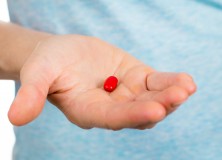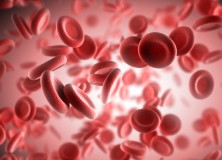Iron is an essential nutrient; your body needs iron to help carry oxygen from the lungs to the rest of your body and helps produce energy. When you aren’t consuming or absorbing enough iron, there can be significant consequences to your health, energy levels, appearance, ability to concentrate, and so forth.
There are a few common symptoms that can often be confused for general sicknesses or the “winter blahs” but they should not be ignored as they could be a sign of iron deficiency:
Always Feeling Cold
As we all know, Winter brings along the dreaded cold weather, but if you find that you can never seem to shake the chill or get warm then this could be a sign of iron deficiency. Think of your body as a coal furnace and the iron as the coal; if you’re not putting enough coal into the furnace, then it will never create enough heat to warm up the entire house.
Until you appropriately fuel your body with the iron it needs, you will continue to feel cold, especially when others are not.
Read more here: Are You Always Cold?
Feeling Tired
Although the holidays are a time to kick back and relax with family and friends, it often brings about tons of shopping, numerous holiday parties to attend, and so forth. Feeling tired after a long and busy day is typical, but feeling that you are constantly in a state of fatigue is not. In fact, chronic fatigue is a common symptom of iron deficiency.
Chronic fatigue could be the cause of other underlying conditions such as diabetes, depression, thyroid problems, etc. It’s important to check if you have any other symptoms related to iron deficiency to help get to the bottom of the chronic fatigue.
Read more here: Experiencing Chronic Fatigue
Pale Skin
Unless you take off for a tropical vacation, you may be looking a little pale throughout the Winter season. However, you shouldn’t mistake this for just a lack of vitamin D from the sun. If you experienced a sudden onset of paleness, or have been unusually pale, it is advisable to seek the advice of a healthcare professional.
Iron deficiency anemia is one of the most common causes for pale skin, and often one of the first noticeable signs. Since iron aids in producing hemoglobin which helps carry oxygen to your muscles and organs, paleness is caused by reduced blood flow.
It’s important to be proactive and be in-the-know when it comes to your symptoms and what they can mean. Utilize this Symptoms Checker to help identify your symptoms and if you are in an at-risk group.














